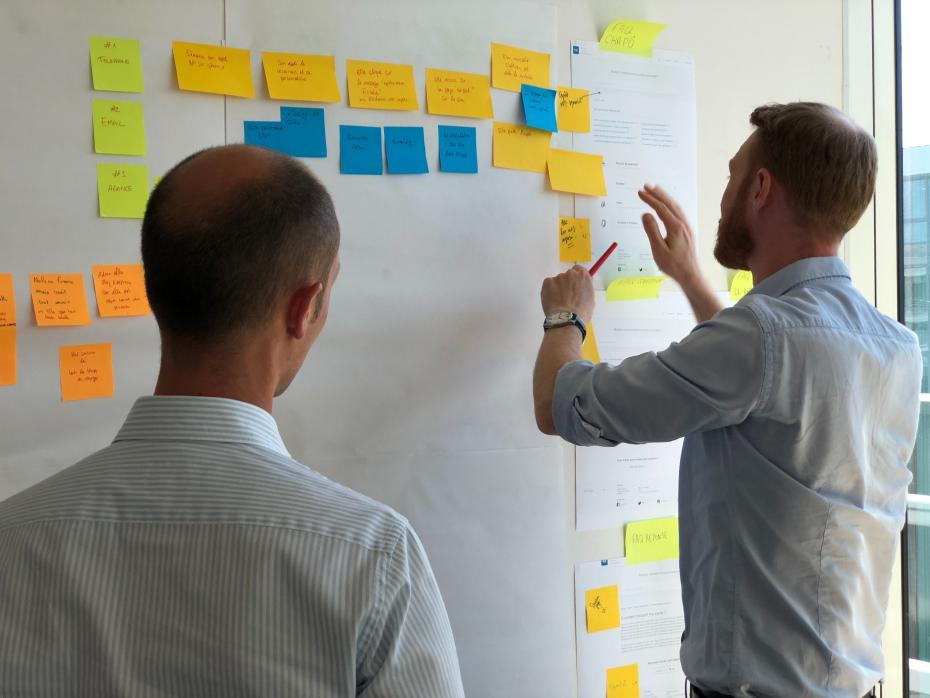
Engaging staff to drive sustainable change
Universities need buy-in from staff when implementing major change. Phil Collins talks about how to keep everyone engaged and invested in their work for long-term institutional success

Universities are, primarily, all about their people. We should worry about finances, of course, but medium- to long-term sustainability is really about individuals’ and teams’ effectiveness. Generally, university staff are skilled and capable, but if they feel disengaged, institutional sustainability is at risk.
Prior to the pandemic, I ran a workshop on engagement with senior university leaders. Due to Covid-19, all in higher education have faced many added pressures and challenges, but the key steps still apply:
Be clear why staff engagement is vital for sustainability
Understand how engagement can be lost
Identify how to create an engaging and enabling environment
Maintain engagement through trusting relationships.
Why engage your staff?
The simple answer is that engaged staff create workable solutions and raise quality, however you want to measure it. If all the solutions come from one person, or a small clique, opportunities are missed and the risk of failure increases.
There is often a perception that senior leaders don’t want staff opinions. This is probably true at times for all university leaders, as they juggle priorities and competing views, and there are cases when such dismissive attitudes become more permanent. However, as I’ve moved a little way up the leadership ladder, I’ve seen many examples where leaders would love more engagement but struggle to get it, or get it in ways that are not helpful.
How is engagement lost?
The demands on leaders to manage and report can mean they drift into a work mode where their communication is one way, undemocratic and seen as a set of directives.
This approach turns staff into operatives who do tasks because they must, not because they see their value. This, in turn, results in staff having less interest in the impact or quality of their work or in making wider contributions.
There will always be times when people are required to do hard and tedious tasks, but if these are managed well so staff understand the value, it’s likely they’ll complete the task as well as they can.
However, staff will often underperform if the bigger purpose behind the task is unclear, if they have no input into how the work is completed, or if there is no apparent concern for its impact on them.
Creating an engaging and enabling environment
Empathetic, truly two-way communication that is led by shared values and open discussion keeps strategic goals up front and allows the real needs and ideas of staff to be heard and understood.
When the first Covid shutdown happened, as at most institutions, at Brunel we were forced into the unfamiliar territory of online meetings to keep the university running.
Fortunately, we found this wasn’t a disaster and that together we could make it work.
Now we have a working model of regular webinars and meetings at all levels of the institution to keep everyone connected. Updates are given and anyone can raise questions directly with senior management, who have shown a commitment to respond.
This digital engagement does not solve everything, but it has helped the senior team identify issues early, and colleagues say it has provided much needed stability and reassurance. Some claim they feel more a part of the university than ever before.
How do we maintain engagement?
The most successful organisations tend to be ones built on trust and relationships in which people feel empowered to contribute and feel that they will be listened to.
Institutions that have maintained, or built, a working culture based on mutual trust and the open exchange of ideas from any direction are likely to emerge from the pandemic comparatively well. They will be better placed to build a successful, sustainable future – as long as this trust is maintained.
University leaders need to have realistic aspirations for change. Almost by definition they tend to be ambitious innovators, but to maintain staff engagement they must be mindful of two key issues.
First, we are undergoing the type of system change that creates all sorts of opportunities – “never let a crisis go to waste” as the saying attributed to Machiavelli and Churchill goes – but it is, as yet, unclear what the new system conditions will be. There is a lot of uncertainty and anxiety among academics about where the potential changes may lead.
There is enough evidence for strategic priorities to be developed; for example, we know we’ll be using e-learning a lot more than we used to.
The danger comes from the second issue – university staff are, in general, very fatigued, and a headlong rush into novelty right now runs the risk of rejection.
Of course, we do need to plan for the next academic year and there will be opportunities to improve things.
We also need to be mindful not to drive forward too quickly – let the evidence build a bit, allow critical reflection and breathing room, then move ahead with empathy and trust.
Phil Collins is vice-dean (education) at Brunel University London.


